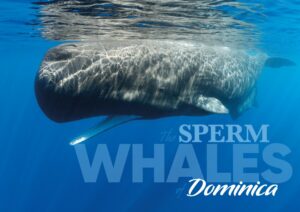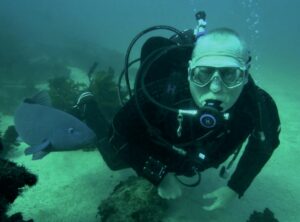‘The planet has been given a chance to recover' – A commonly used phrase plastered on social media due to the coronavirus pandemic of 2020.
Reduced sea traffic, a significant decrease in air traffic, as well as people staying at home has resulted in reduced carbon emissions.
With pollution levels at record lows, the Venice canals clearing, clear views of the Himalayas, it is easy to believe that the pandemic could have long lasting positive environmental change.
However, our oceans are telling a different story. In the first of a new occasional series – timed to co-incide with World Oceans Day – Evie Dennison explores new patterns emerging throughout the pandemic, looking at the increase in illegal fishing in South East Asia due to the impact of nation lockdowns, as well as what is happening here in the UK with the rise in the use of single-use plastics both for personal protective means, but also as a way for hospitality businesses to be able to reopen.

Illegal fishing has long been an ongoing problem for the Fisheries Departments of nations in South East Asia, resulting in over-fishing and resource depletion as well as the use of destructive fishing methods, including the use of poisons and explosives.
The geographical make-up of this region and the origin of the illegal fishing vessels contribute to the extremely challenging job of policing these waters. Task forces already face significant challenges in combating illegal fishing organisations. Combined with the current global crisis these challenges have intensified.
A diver stated in interview that although they have noticed an increase in dropped nets, they do not believe this is due to the authorities being complacent in their efforts to prevent such illegal activities. After showing these photos to the local Fisheries Department of their country, they went to clear the remaining nets found.
Highlighting there has been a governmental interest to ensure that these protected areas remain unharmed and that illegal fishing vessels from other countries do not enter their waters.

On recreational dives over the past six weeks, a group of divers in South East Asia noticed that there have been more nets fouled in marine protected areas. The team could not fathom the extent of the destruction caused and despite their best efforts unfortunately did not manage to remove all the nets from the reef.
The powerful images captured on this dive show the extent of damage these nets cause to marine life. One of the divers said in an interview that they believe the increase in ghost nets in this area is a consequence of the ongoing lockdown.
“The fishermen need the money,” she stated, “they are fishing as a means to generate income after the COVID-19 crisis impacted their traditional means of making money” (Diver, Interview: 31/05/2020). The origins of the illegal fishing vessels remain unknown.
The unemployment rate in Malaysia has reached a record high, with the statistics department recording 600,000 Malaysians are now unemployed as many have seen their livelihoods affected by the movement control order (MCO) that was implemented in early March (CNA, 08/05/20).
The negative impact of MCO on labour and employment opportunities mean many are seeking income from other means, and in this instance, fishing in protected waters.
Indonesian authorities have spoken out about their commitment to remain vigilant to illegal fishing vessels and practices, stating that fishermen have been taking advantage of the perceived drop in enforcement of fishing laws throughout the COVID-19 crisis.
Despite their efforts, the fishery ministry has seen its annual budgets slashed in order to reallocate funding to the governments COVID response (Mongabay, 01/05/20). This issue raises important questions regarding the social security of those whose livelihoods have been affected by the ongoing pandemic not only in this region but globally, as well as reiterating the importance of the protection of the oceans and marine life.
How can we address these new challenges? How can we ensure that people have access to employment whilst keeping them safe from the novel virus as well as continuing our commitment to protect the oceans? These are questions that need answering as we begin to reopen our borders and lift restrictions. The actions we take now will define how we move on with life after lockdown.








